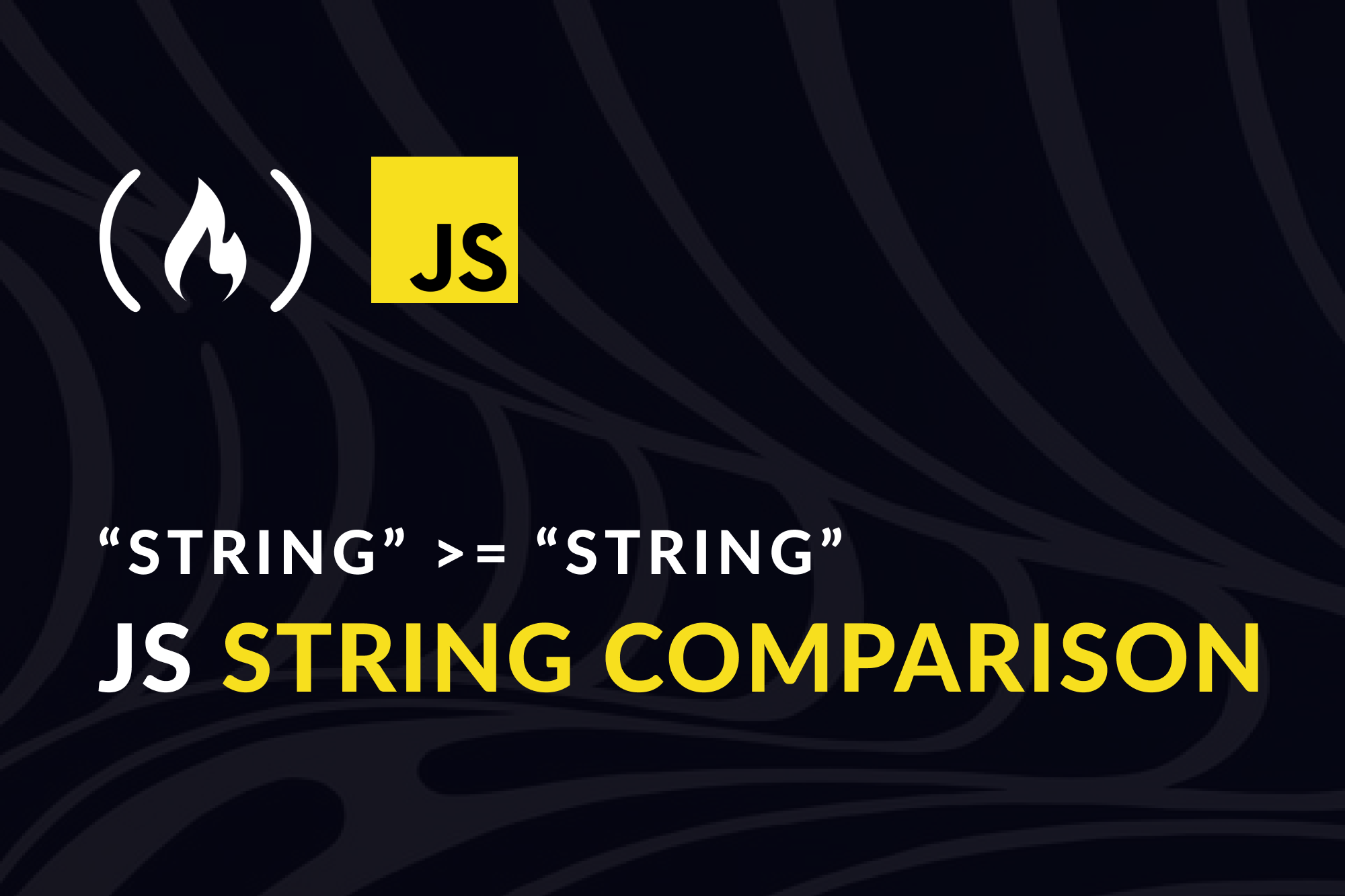You may want to compare two strings to know which is higher or lower alphabetically or to see if they are equal.
You can do this in many ways. I'll show you two of them in this article.
1. How to Compare Strings Using localeCompare
You can use the localeCompare method to compare two strings in the current locale. Here's the syntax:
string1.localeCompare(string2)
locaelCompare returns:
- 1 if
string1is greater (higher in the alphabetical order) thanstring2 - -1 if
string1is smaller (lower in the alphabetical order) thanstring2 - 0 if
string1andstring2are equal in the alphabetical order
Here are some examples comparing two strings:
const string1 = "hello"
const string2 = "world"
const compareValue = string1.localeCompare(string2)
// -1
It gives -1 because, in the English locale, h in hello comes before w in the world (w is further down in the alphabetical order than h)
Another example:
const string1 = "banana"
const string2 = "back"
const compareValue = string1.localeCompare(string2)
// 1
The comparison above gives 1 because, in the English locale, ban in banana comes after bac in back.
One more example:
const string1 = "fcc"
const string2 = "fcc"
const string3 = "Fcc"
const compareValue1 = string1.localeCompare(string2)
// 0
const compareValue2 = string1.localeCompare(string3)
// -1
Comparing "fcc" and "fcc" gives 0 because they are equal in order. "fcc" and "Fcc" gives -1 because capital "F" is greater than small "f".
In some browsers, instead of -1, it may return -2 or some other negative value. So, do not depend on -1 or 1, instead on negative (less than 0) or positive (more than 0) values
2. How to Compare Strings Using Mathematical Operators
You can also use mathematical operators like greater than (>), less than (<), and equal to when comparing strings.
Mathematical operators work similarly to localeCompare – by returning results based on the order of the characters in the string.
Using the previous examples:
const string1 = "hello"
const string2 = "world"
console.log(string1 > string2)
// false
string1 is not greater than string2, because h comes before w, so it is less than.
For the other example:
const string1 = "banana"
const string2 = "back"
console.log(string1 > string2)
// true
string1 is greater than string2 because ban comes after back.
And for the last example:
const string1 = "fcc"
const string2 = "fcc"
const string3 = "Fcc"
console.log(string1 === string2)
// true
console.log(string1 < string3)
// false
string1 is equal to (===) string2, but string1 is not less than string3, which is in contrast to localeCompare.
With mathematical operators, "fcc" is greater than "Fcc", but with localeCompare, "fcc".localeCompare("Fcc")" returns -1 to show that "fcc" is less than "Fcc".
This behavior is one reason why I don't recommend using mathematical operators for comparing strings, even though it has the potential to do so.
Another reason why I don't recommend using mathematical operators is because "fcc" > "fcc" and "fcc" < "fcc" is false. "fcc" is equal to "fcc". So if you're depending on mathematical operators, getting false may be for different reasons than you believe.
So, for comparing strings, amongst the many ways there may be, using localCompare is an effective approach because it can be used for different languages.
Now you know an easy way to compare strings. Happy coding!

